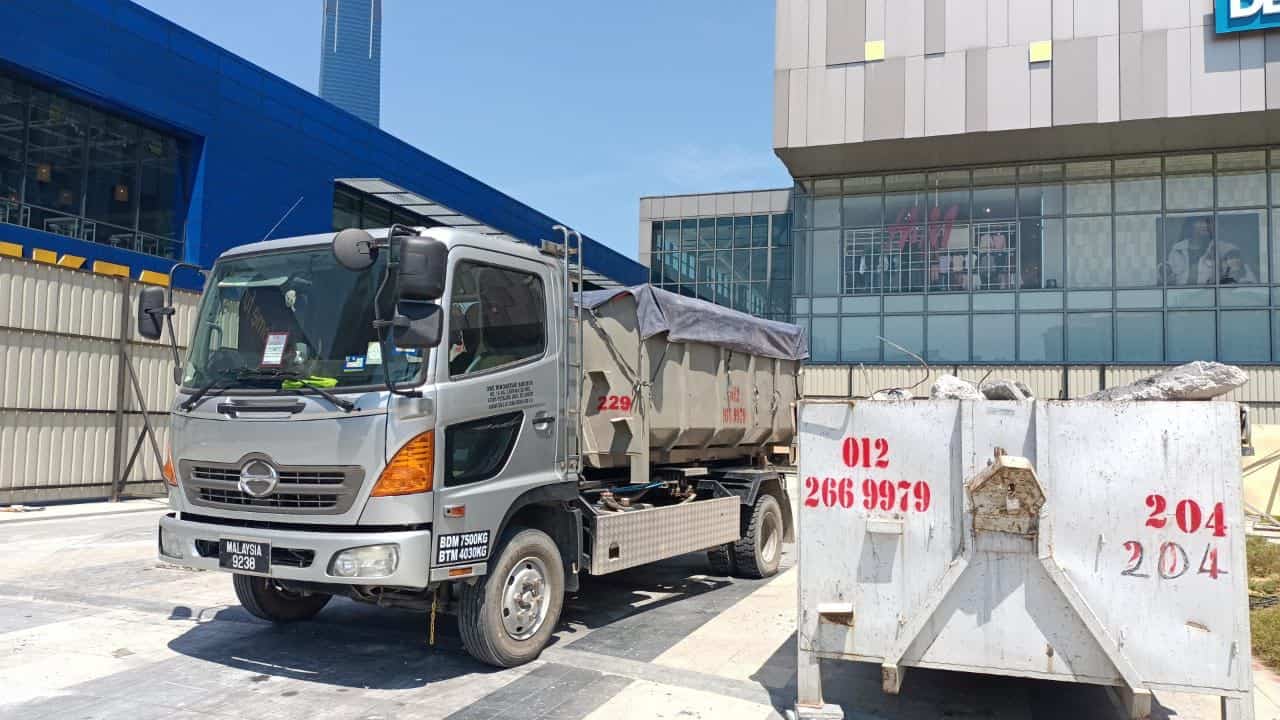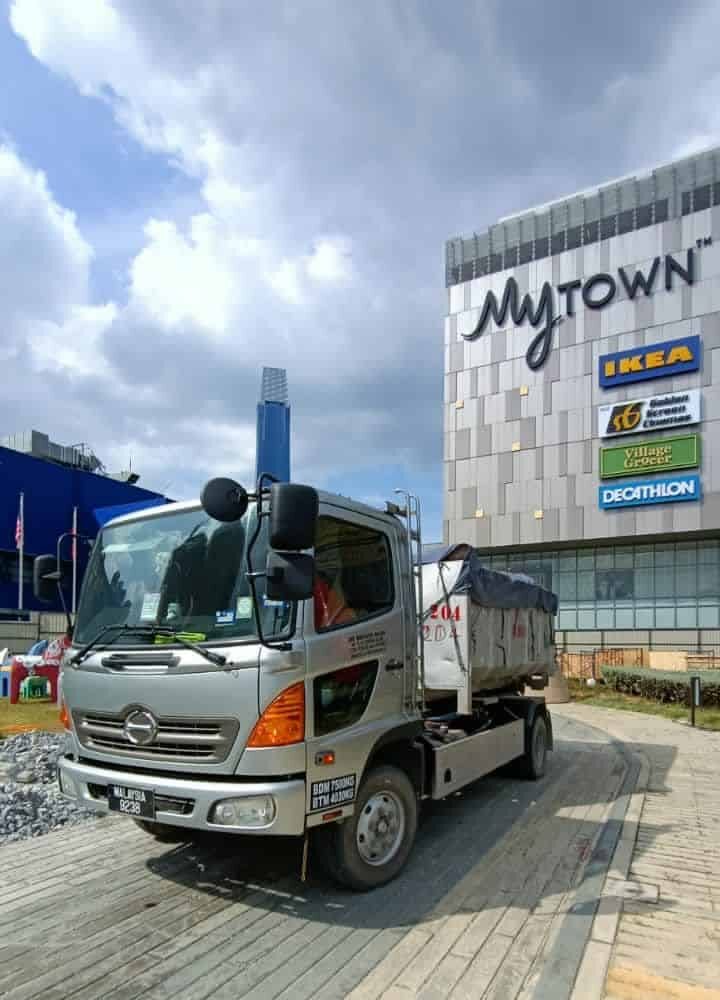RORO BIN RENTAL
Find The Right Size For Your Project

Small Roro Bin
Dimensions: 12′ (L) X 6′ (W) X 2.5′ (H)
Best Use: Heavy construction and demolition waste like concrete and soil.

Large Roro Bin
Dimensions: 12′ (L) X 6′ (W) X 4′ (H)
Best Use: Light-weight construction, industrial, commercial waste, furniture, household bulky waste, trees and etc.

Domestic Roro Bin
Dimensions: 12′ (L) X 6′ (W) X 4′ (H) with roof
Best Use: Domestic food waste (Organic waste).

Extra Giant Roro Bin
Dimensions: 16′ (L) X 8′ (W) X 6′ (H)
Best Use: Light-weight construction, industrial, commercial waste, furniture, household bulky waste, trees and etc.

Giant Roro Bin
Dimensions: 14′ (L) X 7′ (W) X 5.5′ (H)
Best Use: Light-weight construction, industrial, commercial waste, furniture, household bulky waste, trees and etc.
WHAT MAKES US DIFFERENT ?

Value Price

Express Service

Licensed Under Local Authorities

Quick Scheduling
TESTIMONIALS
OUR CLIENTS







PROJECT REFERENCE









Rubbish Collection
Rubbish collection isn’t just about getting rid of waste; it’s an essential part of managing the environment, keeping communities clean, and protecting human health. But how often do we stop to think about what happens to our trash after it’s thrown away? Let’s explore why rubbish collection matters and what’s involved in effective waste management.
Understanding the Basics of Waste Management
Waste management covers the processes needed to handle waste from the moment it’s generated until it’s safely disposed of. This includes collection, transportation, and processing. Effective waste management reduces pollution, conserves natural resources, and contributes to a healthier, more sustainable planet.
Why Rubbish Collection Matters for the Environment
Rubbish collection helps prevent pollution and promotes recycling. Proper collection and disposal are key to avoiding issues like soil contamination and water pollution. It also helps reduce greenhouse gas emissions when organic waste is properly composted instead of ending up in landfills.
Types of Waste in Rubbish Collection
Different types of waste require different handling and disposal methods. Knowing the types can help us understand the importance of sorting our rubbish.
Household Waste
Household waste is a significant portion of all rubbish collected, and it includes various categories:
- Organic Waste: This includes food scraps, yard trimmings, and other biodegradable items. Composting organic waste helps return nutrients to the soil and reduces landfill waste.
- Recyclable Waste: Items like paper, plastic, glass, and metals fall into this category. Recycling these items reduces the need for new raw materials, conserving resources and energy.
- Hazardous Waste: Batteries, paint, chemicals, and electronic items can contain dangerous materials. Proper disposal is essential to prevent harm to both humans and the environment.
Industrial Waste
Industrial activities generate significant waste, including byproducts from factories, chemicals, and construction debris. This type of waste often requires specialized handling and can’t be treated like household rubbish.
How Rubbish Collection Works
Rubbish collection involves a sequence of steps to ensure waste is managed efficiently and responsibly.
The Rubbish Collection Process
Waste collection often involves scheduled pickups by garbage trucks in residential and commercial areas. This process may vary depending on location and the type of waste being handled.
Benefits of Proper Rubbish Collection
Effective rubbish collection brings numerous benefits beyond cleanliness.
Environmental Impact
Proper waste collection keeps land, water, and air cleaner. Reducing waste in landfills decreases methane emissions, and recycling cuts down on pollution caused by manufacturing processes.
Health and Safety
Uncollected waste attracts pests and can harbor bacteria, leading to health issues. Regular rubbish collection protects communities from diseases and reduces safety hazards.
Economic Benefits of Rubbish Collection
When waste is managed well, valuable resources can be recovered and reused. Recycling creates jobs, and reusing materials cuts down on production costs for various industries.
Challenges in Rubbish Collection
Despite its importance, rubbish collection faces several obstacles.
Lack of Public Awareness
Many people are unaware of proper waste disposal practices. Educating communities about waste management can significantly improve the rubbish collection process.
Inadequate Infrastructure in Some Areas
In some locations, rubbish collection infrastructure is underdeveloped or non-existent, resulting in litter and pollution. Developing effective systems can help address this issue.
Dealing with Hazardous Waste
Managing hazardous waste is complex and requires specialized knowledge and facilities to ensure it doesn’t harm the environment.
Role of Technology in Modern Rubbish Collection
Technology is transforming rubbish collection by making it more efficient and sustainable.
Use of Smart Bins and Sensors
Smart bins can detect when they’re full, reducing the need for frequent collections and optimizing routes for garbage trucks.
Automated Collection Systems
Automated systems reduce labor costs and make collection faster and safer, particularly in densely populated urban areas.
How to Contribute to Better Rubbish Collection as a Citizen
You can make a difference by following simple waste management practices.
Practicing Waste Segregation at Home
Separating your rubbish into categories like recyclables, compostables, and general waste makes it easier to dispose of them correctly.
Reducing, Reusing, and Recycling
Think before you throw! Reusing items, reducing waste, and recycling as much as possible all contribute to a healthier planet.
Participating in Local Clean-Up Drives
Joining or organizing local clean-ups helps keep communities clean and raises awareness about the importance of rubbish collection.
Key Laws and Policies Around Waste Management
Laws around waste management vary, but most aim to reduce landfill waste, encourage recycling, and manage hazardous materials responsibly.
Rubbish collection is a critical component of keeping our environment healthy and our communities safe. From segregating waste to using advanced technology, there are many steps involved in efficient waste management. By being aware of how we dispose of waste and contributing positively, we can all play a part in creating a cleaner, greener world.


